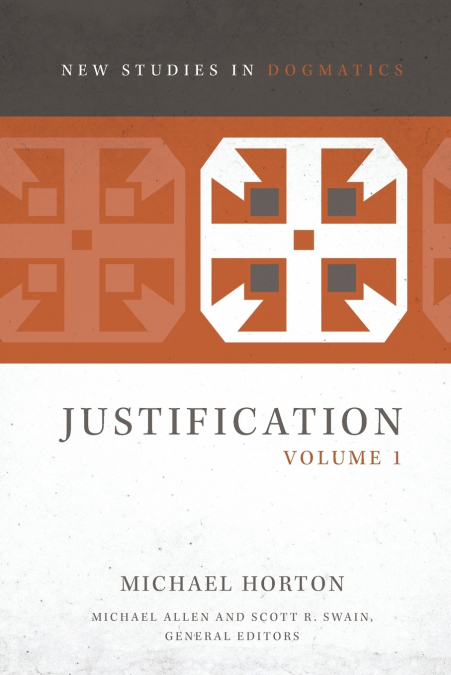
Michael Horton
The doctrine of justification stands at the center of our systematic reflection on the meaning of salvation as well as our piety, mission, and life together. In his two-volume work on the doctrine of justification, Michael Horton seeks not simply to repeat noble doctrinal formulas and traditional proof texts, but to encounter the remarkable biblical justification texts in conversation with the provocative proposals that, despite a wide range of differences, have reignited the contemporary debates around justification.Volume 1 engages in a descriptive task - an exercise in historical theology exploring the doctrine of justification from the patristic era to the Reformation. Broadening the scope, Horton explores patristic discussions of justification under the rubric of the "great exchange." He provides a map for contemporary discussions of justification, identifying and engaging his principal interlocutors: Origen, Chrysostom, Augustine, Thomas Aquinas, John Duns Scotus, William of Ockham, Gabriel Biel, and the magisterial reformers. Observing the assimilation of justification to the doctrine of penance in medieval theology, especially via Peter Lombard, the work studies the transformations of the doctrine through Aquinas, Scotus and the nominalists leading up to the era of the Reformation and the Council of Trent. He concludes his first study by examining the hermeneutical and theological significance of the Reformers' understanding of the law and the gospel and the resultant covenantal scheme that became formative in Reformed theology. This then opens the door to the constructive task of volume 2 - to investigate the biblical doctrine of justification in light of contemporary exegesis."This thorough, systematic, and far-ranging work advances a reading both distinctive and yet more traditional than many of today's dominant paradigms."--CRAIG KEENER, Asbury Theological Seminary"Protestant and Catholic readers . . . will profit by wrestling with this learned historical study."--GERALD R. MCDERMOTT, Beeson Divinity School"This is a volume bristling with theological insight and intellectual energy."--SIMON GATHERCOLE, University of Cambridge"Very impressive and a major contribution to the clarification of the significant issues."--ROBERT KOLB, Concordia Seminary, Saint Louis"A superb and engaging book, marked by a careful and generous listening to other theological traditions. It will not only reenergize the reader with a passion for understanding this long-running doctrinal conversation, but also challenge one to engage critically."--EDUARDO J. ECHEVERRIA, Sacred Heart Major Seminary